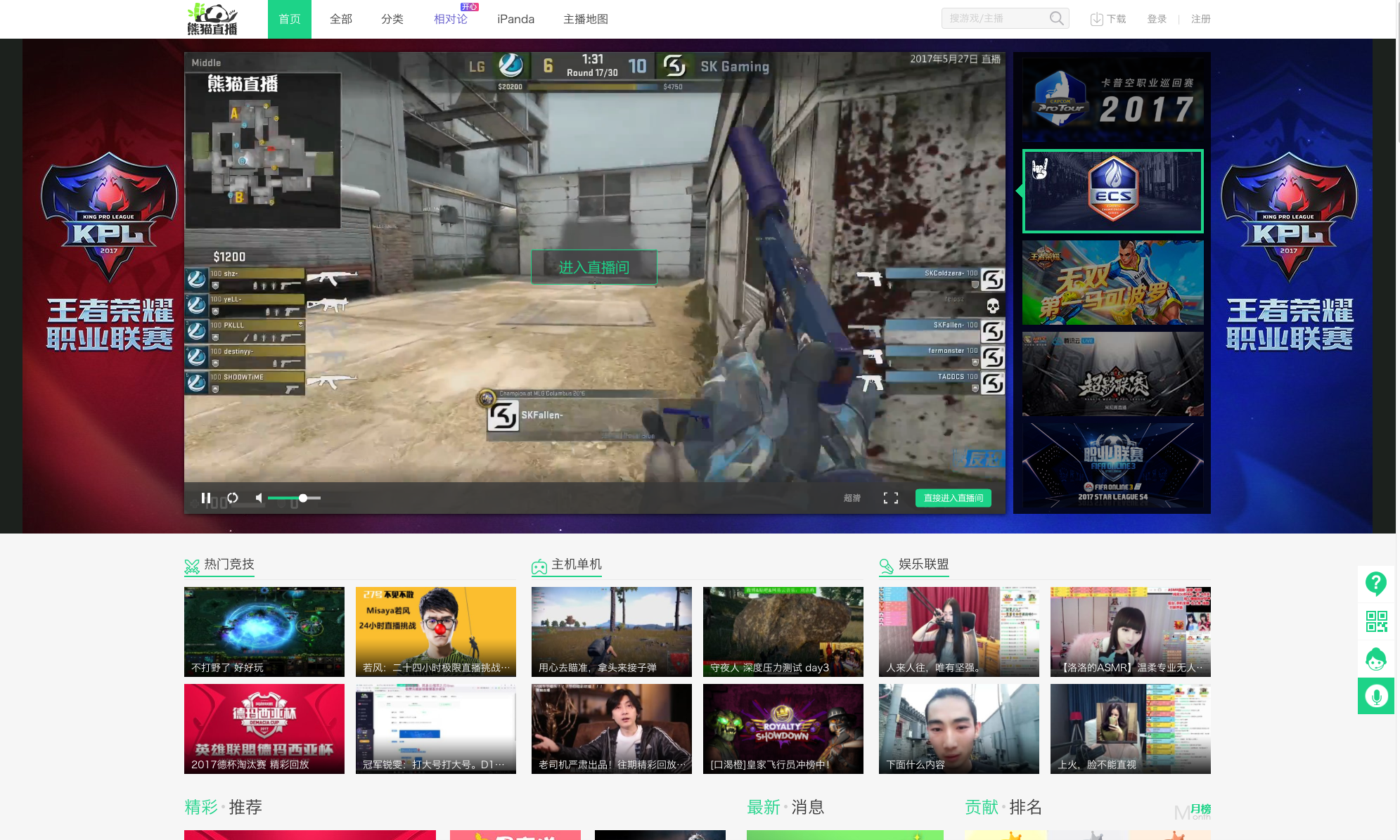Panda TV was founded two years ago by Wang Sicong, the only son of China’s second-richest man Wang Jianlin.

Panda TV (熊猫直播), a Shanghai-based game streaming website, has raised RMB 1 billion in series B funding (in Chinese) led by Industrial Innovation Capital Management (兴业证券兴证资本), causing a stir in the sector.
The funding is the largest the live streaming service has raised since it was founded two years ago by Wang Sicong, the only son of China’s second-richest man Wang Jianlin. Earlier the company had secured an eight-digit RMB series A and A+, following an angel round of several million RMB (in Chinese) in November 2015.
Panda TV has positioned itself as an online entertainment live streaming platform with a focus on broadcasting live e-sports. The company claims it has gathered over 80 million monthly active users, with 150,000 active presenters.
Some speculate that the live streaming service will shift its e-sports focus (in Chinese) and use the new money to build a pan-entertainment platform encompassing entertainment programs, variety shows, e-sports and more, as the exorbitant costs related to purchases of e-sports tournament royalties, salaries of starring presenters (the signing bonus of a famous presenter can be as high as tens of millions of RMB) and content distribution network charges (can be as high as RMB 20 million every month) have made e-sports a cash-burning business.
Behind the big-ticket investment comes the sizzling e-sports sector in China. According to market research firm iResearch, China’s e-sports gamers numbered 117 million (in Chinese) in 2016, with the market size reaching RMB 40 billion. And the market is expected to further grow in the next few years. This lucrative market is set to attract more capital to enter the sector.
The best performers in the global e-sports arena were from China last year, followed by those from the U.S. and Korea, according to Handelsblatt, Germany’s leading financial daily (in Chinese).
E-sports events are now not only held in stadiums but aired on dedicated TV channels and streamed on websites. Technology giants including Tencent and Alibaba are also betting on the flourishing business, pouring heavily into the sector.
Some local governments have been keen to host e-sports contests or build e-sports industrial parks with large companies, in hopes of boosting local revenue through the emerging sector. Last September, China’s Ministry of Education even approved the addition of 13 new majors (in Chinese) including the e-sports and management to the existing programs allowed in universities and colleges.
And Wang Sicong is not the only celeb who has eyes on the booming sector. Pop singer Jay Chou has also opened his own internet cafe brand aimed at e-sports. The Taiwanese pop music superstar forked out RMB 18 million to open an internet café in south China’s Shenzhen, seen by local media as Chou testing the e-sports waters.
E-sports is one of the three live streaming types commonly seen in China. The other two are entertainment and verticals by content (including live streaming platforms related to education, business, e-commerce, sports and social network).
While 2016 was a banner year of the country’s live streaming, a turning point may be at hand for the sector in 2017. Very few live-streaming platforms can survive until the B round, when it comes to the next stage of a company’s financing, a Douyu TV (斗鱼电视) executive earlier told Reuters, citing the high burn rates of the industry.
Tencent-backed Douyu, which was ranked the top player in the e-sports live streaming space, snapped up an aggregated RMB 2.2 billion in 2016, putting its valuation at over US$ 1.2 billion.
As the saying goes, money makes the world go round. At the end, only deep-pocketed players like Douyu TV and Panda TV are expected to have the last laugh in this fierce commercial jungle.
— This article originally appeared on TechNode.





